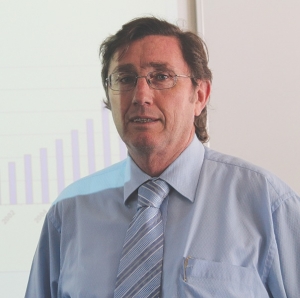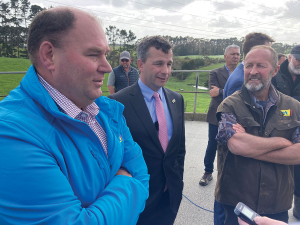Phil Journeaux of AgFirst told Dairy News that MPI farm monitoring data shows mean debt servicing cost in the sector is running at $1.11/kgMS and ranges from nil to $3.38/kgMS.
As a result, the average farm needs income of about $6/kgMS to break-even, including cattle sales which are typically worth about 50c/kgMS.
“If we’d had this drought, with a low payout and interest rates of 8 or 9% there would have been chaos.”
Journeaux says he doesn’t like to see debt servicing costs any higher than that mean $1.11/kgMS figure and suggests some farms need to be more conservative in their approach to debt.
“The main thing saving them is low interest rates, and that the banks seem reasonably willing to keep people going.”
Journeaux’s comments come as official Reserve Bank data shows agricultural debt growth has surged to 5.2% year on year. In February the total topped $50 billion for the first time, and by the end of March it was $50.35bn.
As of June 2012, dairying accounted for 64% of agricultural debt, which suggests today dairy farms owe at least $32 billion.
While the 5.2% year on year growth in agricultural debt is a far cry from the double digit figures during the ‘noughties’, it is the highest year on year increase since Feb 2010.
Bruce Greig, of Lincoln University’s farm management department, presented a paper on dairying’s debt at the South Island Dairy Event in 2011.
At the time, he highlighted how average farm debt per kg milksolids produced had soared from $8.05 in 1999-00 to $21.93 in 2008-09.
Speaking to Dairy News last week he said he doubted it had reduced since.
Like Journeaux, he stressed it’s the range in debt levels around that mean figure that is important.
However, his SIDE conclusion, that there needed to be a mindset shift from farming for capital gain to making cash profits, does seem to have been taken on board. “The focus has been changing. If land value increases aren’t as big then you have to change strategy,” says Greig.









